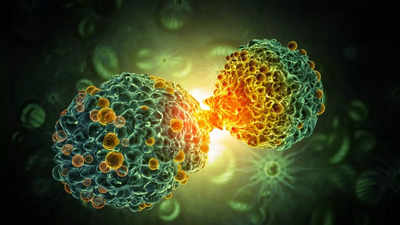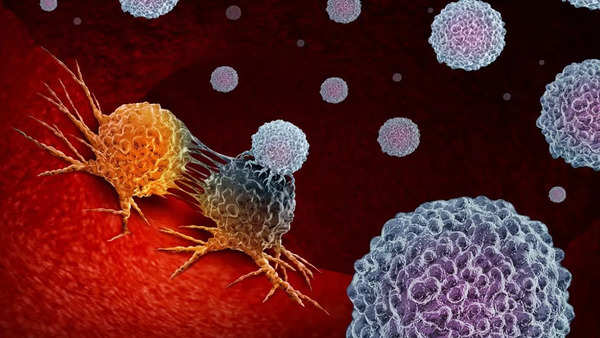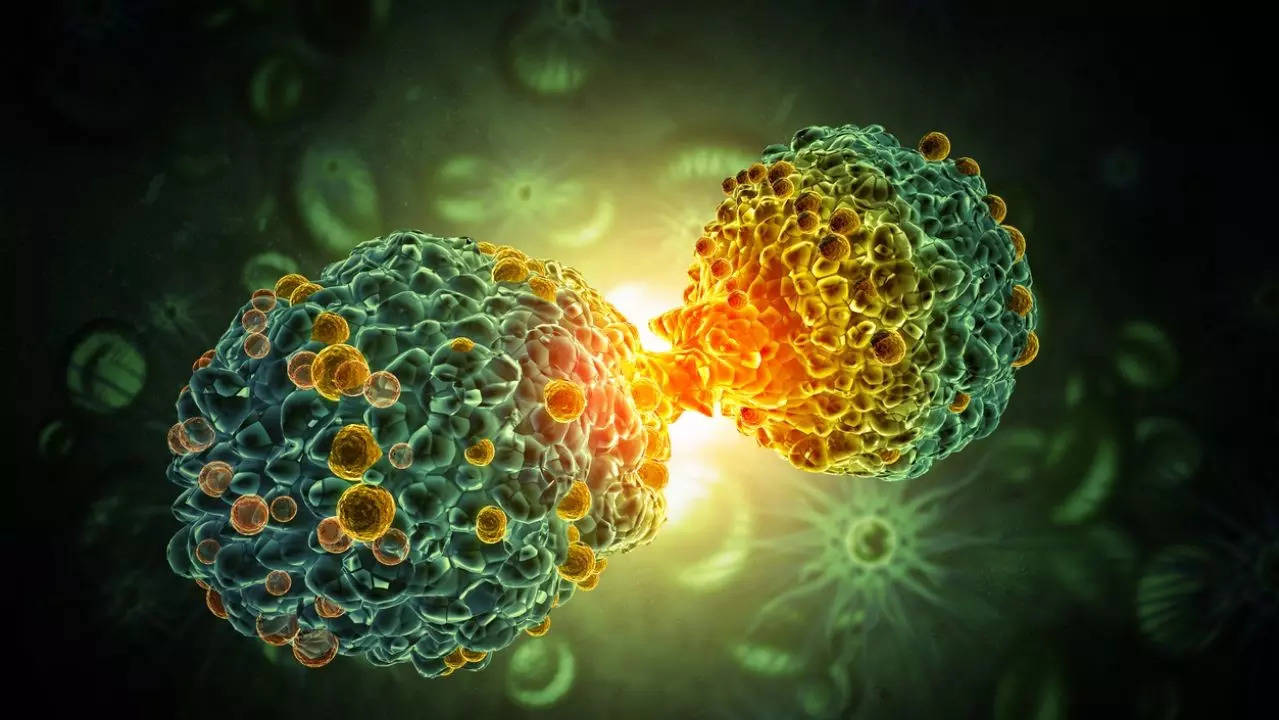In a breakthrough advancement in
cancer treatment
, scientists have developed an innovative approach that can aid in converting colon cancer cells into healthy ones without the need to kill them. This could help minimize the severe side effects from the traditional cancer treatments like chemotherapy that attempt to kill the cancer cells for achieving remission.
This astonishing method has been found by the researchers at
Korea Advanced Institute of Science and Technology
(KAIST) which can potentially prevent cancer recurrence.
Traditional cancer therapies like surgery, chemotherapy, and radiation, aim to remove, destroy, or shrink cancerous cells and tumors. Surgery involves physically removing the tumor, while chemotherapy uses powerful drugs to target and kill fast-growing cancer cells throughout the body. Radiation therapy utilizes high-energy beams, like X-rays, to damage the DNA of cancer cells, preventing them from growing and dividing.
These treatments are designed to eliminate cancer cells while attempting to minimize damage to surrounding healthy tissues.
Professor Kwang-Hyun Cho of the Department of Bio and Brain Engineering said the fact that cancer cells can be converted back to normal cells is an astonishing phenomenon and this study proves that such reversion can be systematically induced.
More about the study
The study, published in the journal of Advanced Science, introduces a computational framework called BENEIN (single-cell Boolean network inference and control) designed to identify master regulators that control cellular differentiation trajectories, with potential applications for cancer reversion. Traditional cancer therapies are limited, but
cancer reversion
, which involves reverting cancer cells to a non-malignant state, could offer a new therapeutic approach. To identify key genes involved in this process, BENEIN analyzes single-cell transcriptome data to model gene regulatory networks (GRNs) and determine which master regulators can induce differentiation.
In their study, the authors applied BENEIN to human intestinal cells and identified three key regulators—MYB, HDAC2, and FOXA2—that inhibit enterocyte differentiation. When these regulators were simultaneously knocked down in colorectal cancer cells, the cells reverted to a more normal-like state. This approach was also validated in mouse models. The BENEIN framework could be a powerful tool to uncover potential targets for cancer reversion and other biological processes by pinpointing key regulatory molecules that control differentiation pathways.
The trouble with conventional cancer treatments is that their focus is on eradicating cancer cells. This faces two key challenges: potential for cancer cells to develop resistance and return, and the collateral damage to
healthy cells
, which can result in side effects.
The new research targets the root cause of cancer development. The research is based on the idea that cancer cells, during their transformation from normal cells, regress along the differentiation trajectory—the process by which normal cells mature into specific functional types.
The new approach can transform cancer treatment by targeting the genetic mechanisms underlying cell transformation. This can also help prevent patients from cancer recurrence and the debilitating side effects that come from cancer treatment.
Researchers find cancer-related fibroblasts induce drug sensitivity
I’m Manas Ranjan Sahoo: Founder of “Webtirety Software”. I’m a Full-time Software Professional and an aspiring entrepreneur, dedicated to growing this platform as large as possible. I love to Write Blogs on Software, Mobile applications, Web Technology, eCommerce, SEO, and about My experience with Life.





